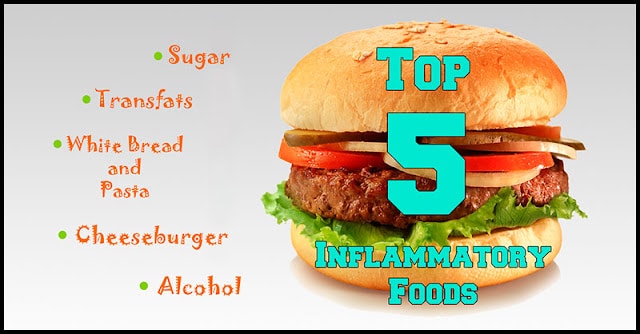Foods such as refined grains and red meat promote inflammation in the body. Aside from this, a report published on the website NutraIngedients.com claims that these foods can also increase the risk of colorectal cancer.
Inflammation is needed by the body to protect itself from harmful stimuli and start the healing process. However, it also plays a major role in the development of colorectal cancer.
Those foods that cause chronic inflammation may also play a part colorectal cancer development.
Researchers from the Harvard T.H. Chan School of Public Health conducted a study using data from 121,050 care professionals from two different groups – for women, the Nurses’ Health Study and for men, the Health Professionals Follow-up Study.
For 26 years, they followed the participants and gave them accomplished food frequency questionnaires every four years. In addition to this, the participants also answered questionnaires about demographics, lifestyle, and health-related information every two years.
Using the food frequency questionnaires, the researchers calculated the empirical dietary inflammation pattern (EDIP) scores and then evaluated associations with new cases of colorectal cancer. The weighted average of 18 food groups that represent dietary inflammation potential measured by inflammatory bio-makers was the basis of the EDIP score.
In this study, researchers have found out that women who ate more inflammatory foods had a 22 percent higher risk of developing colorectal cancer. In the same way, men who followed a high-inflammatory diet has a 44 percent increased risk of having colorectal cancer as compared to those who consume less inflammatory foods. These findings were published in the journal JAMA Oncology.
Moreover, it was also revealed that obese men and lean women adhering to an inflammatory-causing diet are also at risk of this cancer. Aside from this, men and women, though they did not drink alcohol, however, followed an inflammatory diet were found to have 62 percent and 33 percent increase in the risk of colorectal cancer.
Fred Tabung, first author of the study says:
“Strategies to reduce the adverse role of a pro-inflammatory dietary pattern in colorectal cancer development may have higher benefits among overweight or obese men and among lean women or among men and women not consuming alcohol.”
According to the researchers, included in the list of anti-inflammatory foods are tea, coffee, wine fruit juices, yellow/orange vegetables, and green leafy vegetable. While on the other hand, refined grains, sodas, processes food, red meats, and other sugary beverages can cause inflammation.
What Is Colorectal Cancer?
Colorectal cancer is cancer that starts in the colon or rectum. This cancer is also known as colon cancer, rectal cancer, or bowel cancer depending on where they start. It may also be benign, or non-cancerous, or malignant. Malignant cancer can spread to other parts of the body and damage them.
This type of cancer is one of the leading cause of cancer-related deaths in men and women.
You may identify colorectal cancer with these symptoms:
- Changes in bowel habits
- Abdominal pain and bloating
- A feeling that the bowel does not empty properly after a bowel movement
- Diarrhea or constipation
- Bright red blood from the rectum
- Blood in feces, making stools appear black
- Feeling full in the abdomen, even after not eating for a while
- Sudden weight loss
- A lump in the abdomen
- Fatigue or tiredness
- Sudden iron deficiency in men, or in women after menopause









